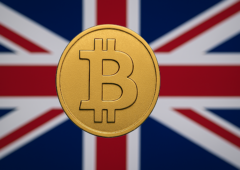Justin Sun Sparks Controversy Over FDUSD Insolvency Claims
03.04.2025 15:45 2 min. read Alexander Stefanov
A stablecoin lost its peg to the US dollar on Wednesday morning, following allegations that the company behind it, based in Hong Kong, was facing bankruptcy.
Tron founder and well-known crypto figure Justin Sun took to social media platform X, urging his followers to act swiftly to protect their investments in FDUSD, a stablecoin operated by First Digital Trust (FDT). Sun stressed the need for regulatory intervention to curb potential losses and safeguard Hong Kong’s standing as a global financial hub.
According to Sun, FDT is essentially insolvent and incapable of redeeming client funds. He advised users to promptly secure their assets, pointing out what he described as serious flaws within Hong Kong’s trust licensing and financial risk management systems.
Sun called on authorities to intervene rapidly to prevent further damage, emphasizing that incidents like these could tarnish Hong Kong’s reputation as a leading financial center.
In contrast, First Digital Trust dismissed Sun’s accusations as entirely unfounded and announced plans to take legal action to defend its name. The company clarified that the dispute involved TUSD rather than FDUSD and insisted that its financial position remained solid. FDT asserted that all reserves backing FDUSD were safe, secured with US Treasury Bills, and thoroughly documented in its attestation report.
FDT claimed that Sun’s statements were part of a calculated smear campaign intended to harm a business rival. The company expressed frustration that it hadn’t been given a fair chance to respond to the allegations, adding that it would take legal steps to protect its reputation from what it described as an orchestrated social media attack.
-
1
Bonk Price Prediction: Binance.US Mention Triggers 9% Jump – Can BONK Reach $1?
07.07.2025 16:29 3 min. read -
2
Top 10 Trending Cryptocurrencies Today, According to CoinGecko
04.07.2025 15:31 3 min. read -
3
Second Largest Bank in Spain Rolls out in-app Bitcoin and Ethereum Trading
07.07.2025 15:30 2 min. read -
4
How Much Profit Would you Make if you Invested $3,000 in Shiba Inu One Year Ago?
09.07.2025 22:00 2 min. read -
5
SPX6900 Price Prediction: SPX Holders Jump and Trading Volumes Explode – Is $2 In Sight?
09.07.2025 17:44 3 min. read
U.S. Public Pension Giant Boosts Palantir and Strategy Holdings in Q2
According to a report by Barron’s, the Ohio Public Employees Retirement System (OPERS) made notable adjustments to its portfolio in Q2 2025, significantly increasing exposure to Palantir and Strategy while cutting back on Lyft.
Key Crypto Events to Watch in the Next Months
As crypto markets gain momentum heading into the second half of 2025, a series of pivotal regulatory and macroeconomic events are poised to shape sentiment, liquidity, and price action across the space.
Top Trending Cryptocurrencies Today: Qubic, Conflux, and Tezos
The crypto market is seeing a burst of activity, with several altcoins outperforming the broader market.
Altcoins Drain Bitcoin Liquidity as Correlation Breakdown Sparks Caution
According to a new market update from Alphractal, altcoins have been outperforming Bitcoin in recent days—drawing liquidity away from the leading cryptocurrency and triggering key warning signals.
-
1
Bonk Price Prediction: Binance.US Mention Triggers 9% Jump – Can BONK Reach $1?
07.07.2025 16:29 3 min. read -
2
Top 10 Trending Cryptocurrencies Today, According to CoinGecko
04.07.2025 15:31 3 min. read -
3
Second Largest Bank in Spain Rolls out in-app Bitcoin and Ethereum Trading
07.07.2025 15:30 2 min. read -
4
How Much Profit Would you Make if you Invested $3,000 in Shiba Inu One Year Ago?
09.07.2025 22:00 2 min. read -
5
SPX6900 Price Prediction: SPX Holders Jump and Trading Volumes Explode – Is $2 In Sight?
09.07.2025 17:44 3 min. read


